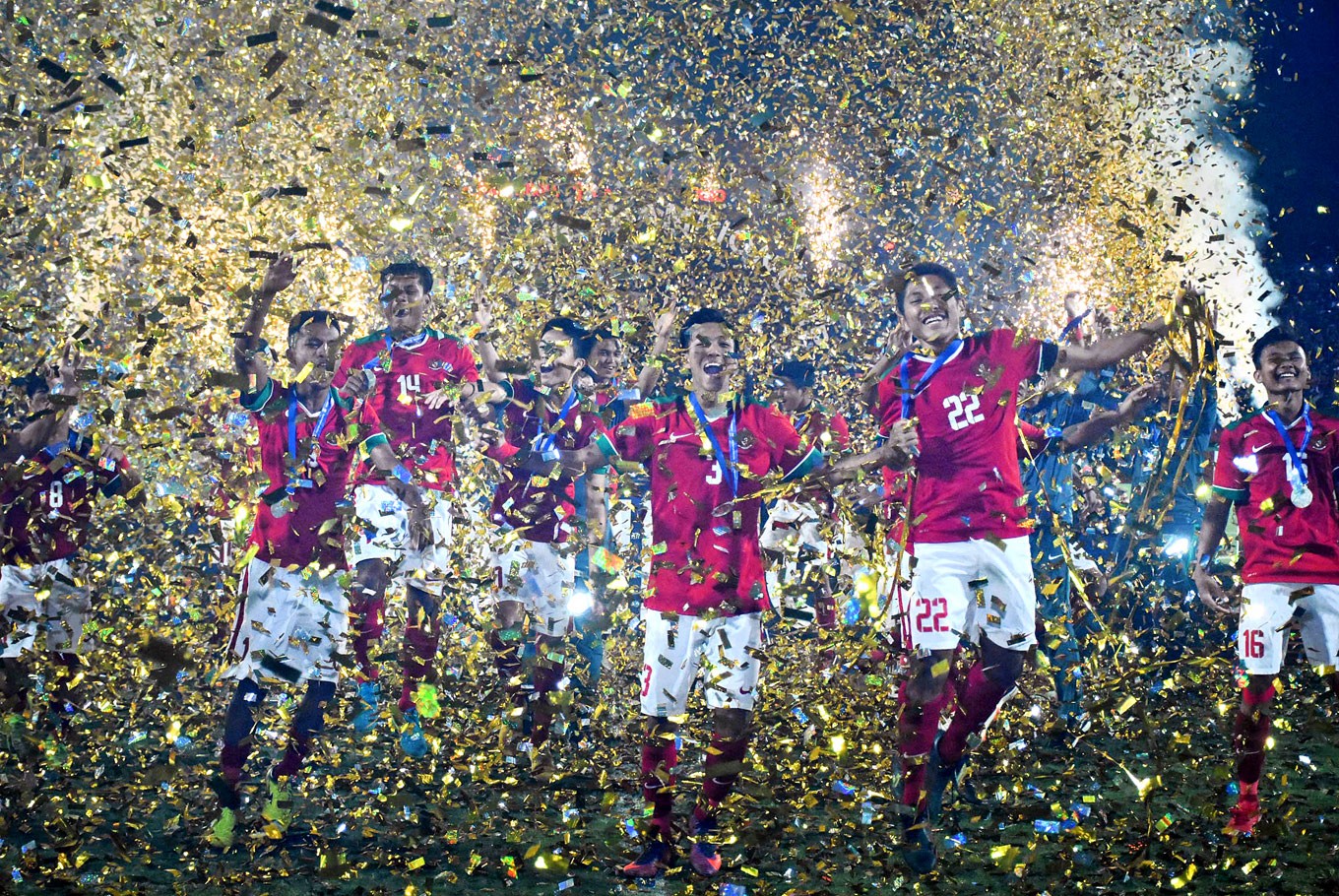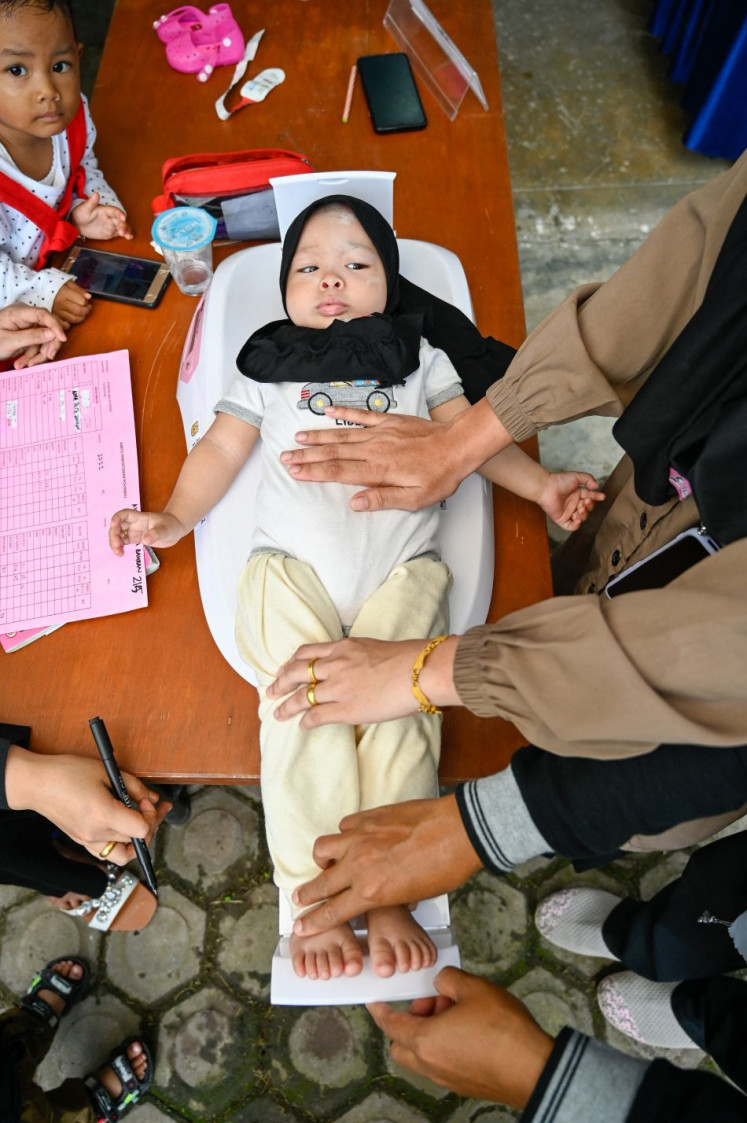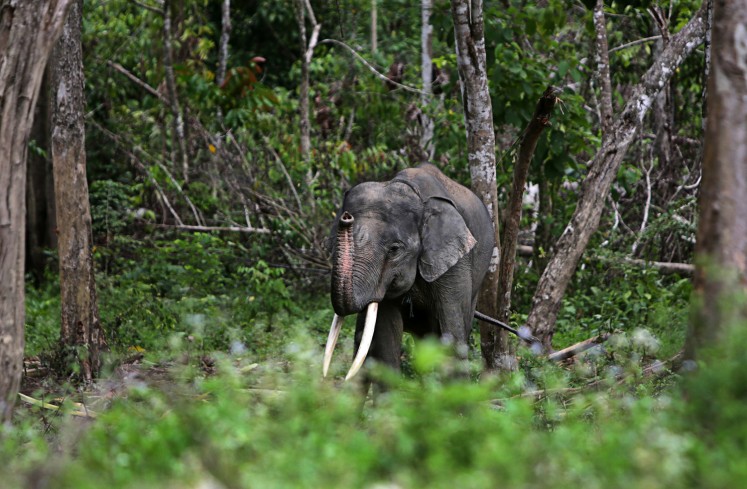Popular Reads
Top Results
Can't find what you're looking for?
View all search resultsPopular Reads
Top Results
Can't find what you're looking for?
View all search resultsPSSI own greatest enemy in fight against match fixing
The public should feel surprise and awe following a match-fixing case implicating an official of the Soccer Association of Indonesia (PSSI).
Change text size
Gift Premium Articles
to Anyone
T
he public should feel surprise and awe following a match-fixing case implicating an official of the Soccer Association of Indonesia (PSSI). Madura FC manager Januar Herwanto released a complete transcript of his chat with Hidayat, in which the then-member of the PSSI executive committee offered him Rp 150 million (US$10,344) to let his team lose to PSS Sleman in a decisive second-tier league match.
The conversation was the highlight of a talk show aired on one of the country’s private TV channels late last month. Hidayat, who was among the guests of the popular program, denied allegations that he brokered attempts to fix the match, but a few days later he resigned from the soccer body.
Finally, the PSSI disciplinary committee banned Hidayat from involvement in soccer activities for three years and from entering a soccer stadium for two years and fined him Rp 150 million for attempting to influence the results of the match.
Most recently, PSSI deputy chief Joko Driyono announced a plan to set up an ad hoc antimatch-fixing committee, the mandate of which would include investigating irregularities or indications of match fixing in the country’s soccer competitions. Apart from PSSI executives, law enforcement officials and other stakeholders would be members of the committee.
Such a bold move deserves credit, but whether the committee lives up to the high public expectations remains to be seen. The coordinator of Save Our Soccer (SOS), Akmal Maharli, has warned that the committee would morph into a paper tiger unless the PSSI can uphold its integrity and commitment.
University of Indonesia (UI) law expert and former police detective Benny Mamoto said the PSSI is taking the right path by involving the police in the antimatch-fixing committee. Those behind the practice could be charged with bribery, gambling and fraud right away, Benny said.
Few would doubt match fixing is rampant in Indonesian soccer. The practice has been entrenched for so long that efforts to eradicate it have been doomed to fail. One big barrier standing between the PSSI and the eradication of match fixing seems to come from within the soccer body itself. It simply lacks strong will to fight match fixing, which raises many eyebrows.
In 1998 the PSSI assigned Adang Ruchiatna to lead a team to find the facts surrounding match-fixing allegations. The team grilled referees, club owners and competition officials who were suspected of involvement in the insidious collusion behind the rampant match fixing at that time. Eventually the PSSI declared referee committee chairman Djafar Umar guilty and banned him from all soccer-related activities for 20 years. He stood up and accepted the blame.
However, the PSSI was reluctant to report the scam to the police. To make matters worse, then PSSI chairman Azwar Anas said Djafar did the dirty job alone, citing a lack of evidence to name others involved.
The then-youth and sports minister Hayono Isman, out of disappointment, expressed his disbelief of the PSSI’s decision.
Unsurprisingly, more match fixing scandals erupted afterward as the brains behind the match-fixing racket had never been revealed, let alone arrested.
In 2013, Bontang FC manager Camara Fode of Guinea was banned from soccer for life after the PSSI’s disciplinary committee found him guilty of fixing a match between Bontang FC and PSLS Lhokseumawe. The committee suspended players from both teams for 24 months.
A year later, in a second-tier league match, PSS Sleman and PSIS Semarang scored five own goals between them only to avoid facing Borneo FC in the semifinals. The scandal resulted in lifetime bans for several players.
Recently, Bambang Suryo, who claimed to have fixed matches in the past, openly accused the PSSI of turning a blind eye to match-fixing practices, which are as rampant now as in the past, in all three leagues under the PSSI’s auspices. He said he witnessed a club owner, known by the initials VW, fix matches without any fear.
Such corrupt mentalities seem to have become deep-seated in the country’s soccer, as is evident not only in that the PSSI has twice without shame allowed a corrupt figure to lead the organization, but also in the bribery and document forgery involving parents that have often marred the selection of players for the national junior teams.
That the PSSI has remained silent about these acts has only fertilized corruption, including match fixing, in the sport. The PSSI resolving cases of match fixing partially or, as in the current case, in an ad hoc way has set bad precedents.
Criminal investigations, followed by court trials, are therefore necessary to help eradicate the practice as they would provide an effective deterrence, but beating match fixing would require the PSSI to fix itself beforehand.
The ad hoc committee to eradicate match fixing might end up looking like a dog that chases its own tail, unless the PSSI dares to surrender its own members allegedly involved in the scam to the police.











